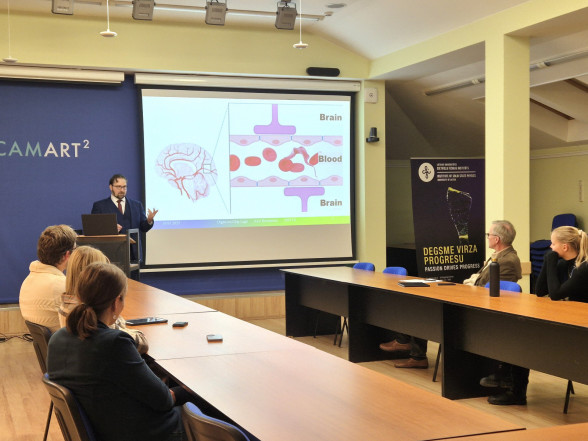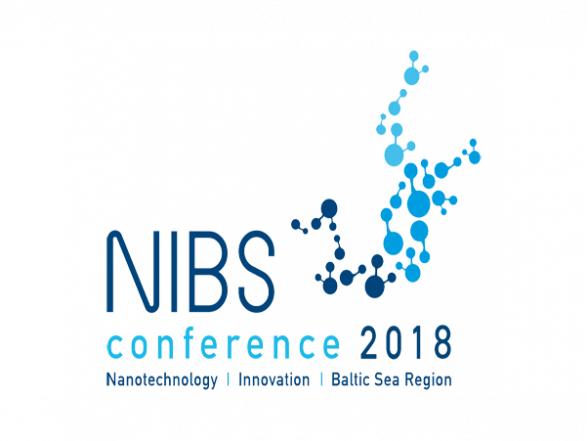The ISSP UL has significantly advanced its research in microfluidics, focusing on organ-on-chip technologies. The Micro and Nanodevices Laboratory is innovating new materials to reduce small molecule absorption and maintain anaerobic conditions. While cell culturing and biological studies occur at partner organizations, ISSP UL researchers are developing microfluidic devices for extracellular vesicle separation and concentration from biological samples aimed at early cancer diagnostics. Additionally, the laboratory explores applications in synthesizing spider silk and studying magnetic particles.
The importance of microfluidics in biomedical research was highlighted in two insightful guest lectures held in January. On January 10, ISSP UL hosted Dr. Axel Hochstetter, a prominent expert in microfluidics and organ-on-chip technologies. With over 12 years of experience developing microfluidic devices and advanced imaging techniques, Dr. Hochstetter shared his significant contributions to biophysics and engineering. His leadership roles in prestigious institutions and startups underscore his expertise in the translational impacts of microfluidics on life sciences. Attendees gained valuable insights into cutting-edge microfluidic technologies and their transformative potential in biomedical research.
Building on this momentum, Prof. Viviana Claveria spoke on January 15, focusing on microfluidic technologies and their applications. A physicist with extensive biophysics and biofluids knowledge, Prof. Claveria discussed her decade-long experience, including postdoctoral positions at the University of Chile, Georgia Institute of Technology, and the University of Montpellier. Her work on microfluidic manipulation, organ-on-chip systems, and blood flow dynamics contributes to innovative projects advancing biomedical research.
Both lectures underscored ISSP UL’s commitment to advancing microfluidics and its applications in biomedical technology. The discussions provided a deeper understanding of microfluidic devices’ critical role in modern research, paving the way for new developments in organ-on-chip systems that could revolutionize drug testing and disease modeling.
As ISSP UL fosters a collaborative environment for cutting-edge research, these lectures demonstrate the importance of microfluidics in shaping the future of biomedical science. The insights shared by Dr. Hochstetter and Prof. Claveria are sure to inspire ongoing research and innovation within the institute and beyond.



